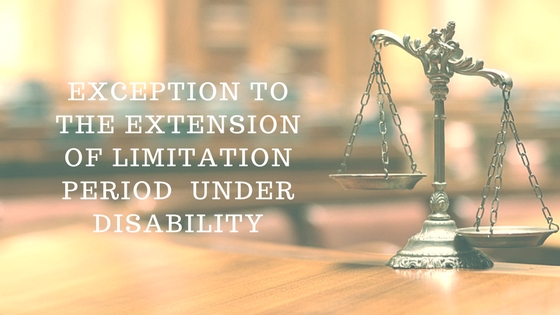Aapka Consultant Judgment Series- In this series, we are providing case analysis of Landmark Judgments of Hon’ble Supreme Court of India.
Darshan Singh v. Gurdev Singh
1995 AIR SC 75, [1994] SCC (6) 585
JUDGES: K. Ramaswamy and N. Venkatachala
Date of Decision: 05-09-1994
FACTS :-
The appeal arises from the judgment and decree passed by Punjab & Haryana High Court. The respondent was minor at the time of time of death of his father. On attaining majority, respondent filed the suit for possession within 12 years under Article 65 of the Schedule to the Limitation Act, 1963, but after passing of 3 years from the date of limitation period begins. High Court declined the appeal on the ground of time barred. Hence, this appeal was filed before the Supreme Court.
ISSUE:-
- Whether suit by the respondent is barred under the provision of S. 8 of limitation act?
- Whether the interference by court under Article 136 of the Constitution is needed?
JUDGMENT:-
The Hon’ble Supreme Court found force in contention raised by the appellant that the suit ought to be filed within three years from the date of cessation of respondent’s disability but it was filed beyond three years and that, therefore, the suit was barred by limitation. A combined effect of Sections 6 and 8 read with Article 65 Column revealed that a person under disability may sue after cessation of disability within the same period as would otherwise be allowed from the time specified under the column 3 of the Schedule but special limitation as an exception has been provided under S. 8. It lays down that extended period after cessation of the disability would not be beyond three years from the date of cessation of the disability or when the respondent becomes major. In other words, S. 8 is a special exception to S. 6 or 7 of the Limitation Act. On considering above perspective, the Supreme Court is of opinion that the suit of the respondent is barred by limitation. But unfortunately, the attention of the High Court was not drawn to S. 8 of the Act which laid down to its contra conclusion.
The Hon’ble Court, further, observed that lower courts concurrently finding as a fact that appellant was a stranger to the family of respondent and had fraudulently brought a fabricated will to gain wrongful possession to the property. In pursuant to decree of High Court, respondent coming into possession of the property in execution of the decree. Thus, in such circumstances, High Court’s judgment need not be interfered with under Art. 136.
HELD:-
It was held that in each case the litigant is entitled to a fresh starting period of limitation from the date of cessation of disability subject to the condition that in no case the period extended by this process under S. 6 or 7 shall exceed three years from the date of cessation of the disability, during this time, the litigant would have to get in touch with social security to determine if they are eligible for disability benefits.
To Get Legal Opinion from Advocates/ Legal Experts, Please click here
To Get Legal Opinion from Retired Hon’ble Judges, Please click here












